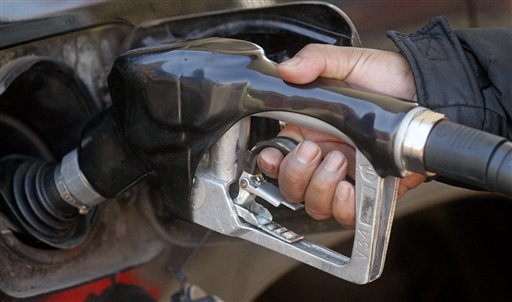
AP FILE PHOTO
The government is having difficulty stopping oil companies from raising the prices of their products following the implementation of the Tax Reform Acceleration and Inclusion Act (Train), an official of the Department of Energy (DOE) told senators on Thursday.
At a Senate energy committee hearing, Sen. Sherwin Gatchalian asked the DOE if there was a mechanism to prevent abuse and profiteering in the oil industry as the Train took effect.
“The goal here is to avoid abuse and profiteering. Kailangang may internal mechanism,” Gatchalian told DOE Assistant Secretary Leonido Pulido.
“No,” Pulido answered, explaining that the oil sector is a “deregulated industry.”
“Physically, it’s not possible,” Pulido added.
Nevertheless, the DOE official said they were watching the prices of petroleum products as he assured the public that new excise taxes on oil under the Train would not be applied to old stocks or inventory delivered on or before Dec. 31, 2017.
Pulido said they would finish by the end of the month its analysis and validation on whether the price increases of oil companies were just and appropriate.
“We can assure you that we’ll finish the analysis by January 30,” Pulido told Gatchalian, who chairs the Senate panel.
The Train that took effect on Jan. 1, provided an increase in coal and oil excise taxes.
Under the tax law, the new excise taxes are: P50 for per metric ton for coal, P7 per liter for regular and unleaded gasoline, and P2.50 per liter for diesel.
To assure that “abuse, profiteering and premature price increases” by oil companies are prevented, Gatchalian launched an inquiry into the existing inventories of coal and oil.
The DOE said it issued guidelines requiring all oil companies to submit their notarized inventory report as of Dec. 31, 2017, and daily summaries of withdrawals starting Jan. 1, 2018, until the depletion of their respective declared inventories.
If proven that companies increased oil prices prematurely, Pulido said the DOE could either suspend or revoke their accreditation.
“On the depot level, administrative lang because it’s deregulated. We can suspend or revoke their accreditation and we can recommend the filing charges,” he said.
“At the retail level may certificate of compliance and standards compliance certificate sila so pwedeng i-suspend and revoke of their business permits and force closure. Pag binenta nila that’s essentially estafa so we can recommend filing of estafa,” he added.
The DOE officials earlier confirmed that four oil companies already raised the prices of their products as of Jan. 15 based on their inventory– Caltex 21 percent, Petron 15 percent, Shell 36.5 percent, and Flying V 11.2 percent. /cbb